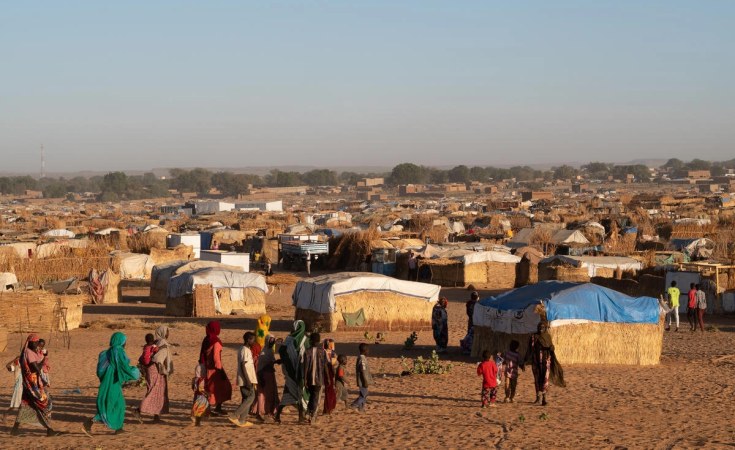New York — A new U.N. report warned Thursday that conflict, climate and economic stress are driving severe hunger and in some cases famine conditions, in 22 countries and territories, with no likelihood for improvement in the next six months.
"So, you have conflict impacts, climate impacts in the same countries, as well as both the combination of the two turns into economic devastation for people," Arif Husain, chief economist of the World Food Program, said of the main drivers of the hunger crises to reporters in a video briefing.
The situation is most severe in the Gaza Strip, Sudan, South Sudan, Haiti and Mali, where millions of people are in the highest levels of food insecurity, meaning famine, risk of famine or starvation are happening.
In Gaza, U.N. food agencies have been warning about the critical situation for months. It is fueled by the nearly 13-month war between Israel and Hamas, which has made it dangerous and difficult for humanitarians to get food and other assistance to about 2 million Palestinians trapped in the crossfire.
WFP's Husain said 91% of Gazans are at crisis levels or worse for hunger, with about 345,000 of them in faminelike conditions.
"And the report says basically that there is a risk -- there's a persistent risk -- of famine for the entire Gaza Strip," Husain said.
The situation in Sudan is even worse because the numbers of people are dramatically higher.
"Time is running out to save lives," Rein Paulsen, director of the Food and Agriculture Organization (FAO) Office of Emergencies and Resilience, told reporters of Sudan.
"People are facing total collapse of livelihoods and starvation in areas where conflict is hitting the hardest across the country, including in Darfur, in Jazira, in Khartoum and in Kordofan," he said.
Paulsen noted that famine levels of food insecurity were reported two months ago in the Zamzam camp in North Darfur, where several hundred thousand internally displaced people are sheltering. Fighting has escalated in recent months in that region between the army and a rival paramilitary group.
"And those famine conditions are likely -- highly likely -- to persist unless something changes," he said.
In the Western Hemisphere, Haiti is in the grip of a serious hunger crisis because of the rampant violence from armed gangs whose kidnappings, killings, rapes and looting have left Haitians in the capital and some outlying areas afraid to leave their homes.
Two million people do not have enough to eat, and about 6,000 of them are experiencing famine levels of food insecurity, Paulsen said.
"Immediate action is imperative to save lives, to prevent starvation, and to help vulnerable populations restore their livelihoods amidst unprecedented violence and displacement," he added.
In Africa, Mali and South Sudan are also at the top of the list of hunger hot spots.
WFP's Husain said about 2,500 people are at catastrophic or famine levels of hunger in Mali and another 121,000 are right behind them.
In South Sudan, affected by the war in Sudan and severe flooding, the number of people facing starvation and death was projected in the report to nearly double between April and July to 2.3 million, compared with the same period in 2023. Hunger is expected to worsen when the next lean season begins in May.
A step behind these most affected countries are those of "very high concern" for humanitarians, including Chad, Lebanon, Myanmar, Mozambique, Nigeria, Syria and Yemen.
"These are classified and categorized in this context where we have a high number of people facing particular acute food insecurity, and where we also see drivers that are expected to further intensify life-threatening conditions in the coming months," Paulsen said.
Kenya, Lesotho, Namibia and Niger are new to the list of hunger hot spots this year, joining Burkina Faso, Ethiopia, Malawi, Somalia, Zambia and Zimbabwe to round out the list.
WFP's Husain said humanitarians need both resources and safe access to assist the millions of people in need to bring the high rates of hunger and malnutrition down.


